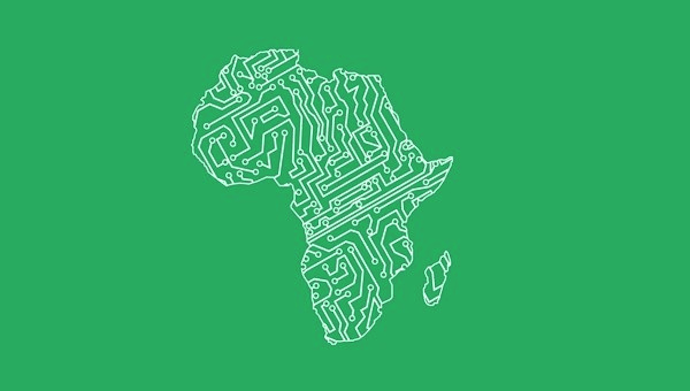
In the context of a technological revolution that is advancing at a very high speed, the potential for development, collaboration and enrichment of the digital offer is exponential –especially for African startups in the young continent.
Admittedly, the internet penetration rate (25 per cent of the population in sub-Saharan Africa) is not yet up to the ambitions, but connectivity is advancing quickly, investments are sustained, and skills are not lacking.
If we exclude this pandemic period, the increase in the internet penetration rate has been dazzling with a growth rate of 10,199 per cent over the period 2000-2018 (570 per cent in Europe and 219 per cent in North America), according to the Internet World Stats Institute.
The first cables connecting Europe, Africa and Asia were only put into operation in 2002 and this development is mainly the result of the boom in wireless technologies and African fintech in particular.
The World Bank mentions an average of 25 per cent of internet users in sub-Saharan Africa, against 60 per cent in North Africa and the Middle East, for a global average of 50.8 per cent (against 82.4 per cent in Europe and 87.6 per cent in North America).
South Africa passed the 57 per cent mark of the population with internet access in 2019 from 70 per cent. According to figures released by the Digital Report 2020, 59 per cent (4.5 billion people) of the world’s population had access to the internet at the end of 2019.
The banking rate remains among the lowest in the world, but that does not prevent the rapid and limitless development of Mobile Money. In 2020, the African continent had 562 million Mobile Money accounts which represent 45 per cent of the number of Mobile Money accounts opened in the world with more than 500 million dollars of transactions per day. Safaricom’s launch in 2007 of M-PESA is considered a success and a global benchmark.
Also Read: iPhone co-inventor joins SG insurtech startup bolttech’s US$180M Series A round
Bolstered by this growth and access to new technologies, innovative young African startups have nothing to envy of Western or Asian nuggets. They need investment and funds to develop and are increasingly looking to Asia.
Africa is not only natural resources (biodiversity, forests, hydrocarbons, mines, phosphates, fishery resources), it is also a market that will reach two billion in 2050 and has endless opportunities for innovation and new technologies.
We see more and more African countries forging new relationships with Asian countries in a win-win relationship or South-South collaboration. African startups have a lot to gain from the Asian experience and from following the same path, believing, or even sharing the ambitions of tomorrow.
Several startups such as SunCulture and Socowatch (Kenya), MeQasa (Ghana), LIfeQ and Jumo (South Africa), VConnect and Kobo360 (Nigeria), Koolskools and Chari (Morocco), Glamera and Brimore (Egypt), Zafree Papers (Ethiopia), Enova Robotics (Tunisia), Yobante Express (Senegal), Easy Matatu (Uganda), Cowtribe Technology (Ghana), Bag Innovation (Rwanda), and Kilimo Fresh (Tanzania), in several sectors are making headlines with their prowess and inventiveness.
They are revolutionising Africa now and can go further if the opportunity presents itself tomorrow to create a better world for all.
Trade relations between the countries of Southeast Asia (SEA) and Africa have been developed in recent years and should be pushed forward in the target of South-South cooperation. The fintech sector in emerging markets and especially in Africa has exploded over the past five years according to the “State of Fintech in Emerging Markets” report.
African startups expect a lot from private and public actors in SEA to support the African digital economy by making financial and technological resources available to take a new step forward. The creation of cross-funds between SEA and African companies and states dedicated to supporting young digital entrepreneurs are certainly expected and appreciated initiatives.
The co-development of infrastructures accompanying the digital revolution that is taking place on the continent is also a means of accelerating this cooperation across the entire value chain of the technological ecosystem.
In 2025, technologies and mobile services will constitute an important part of Africa’s GDP and will have to create an added value of several billion dollars, especially with the ongoing development of platforms and open banking.
–
Editor’s note: e27 aims to foster thought leadership by publishing views from the community. Share your opinion by submitting an article, video, podcast or infographic
Join our e27 Telegram group, FB community or like the e27 Facebook page
The post Uninhibited African startups in search of a win-win collaboration with SEA appeared first on e27.

